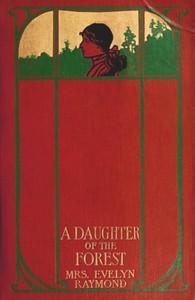Read this ebook for free! No credit card needed, absolutely nothing to pay.
Words: 75918 in 29 pages
This is an ebook sharing website. You can read the uploaded ebooks for free here. No credit cards needed, nothing to pay. If you want to own a digital copy of the ebook, or want to read offline with your favorite ebook-reader, then you can choose to buy and download the ebook.
Seal of Local Authority Title Page. St. Giles' Church v Rev. Wm. Moreton v Rev. G. H. Fisher, M.A. v Dr. Richard Wilkes v Moseley Hall 65 Boscobel 65 Bentley Hall 137 Willenhall Trade Token 166 Borrow, George 169 Borrow's Birthplace 169 Neptune Inn 177 Bell Inn 177 Old Bull's Head 177 The Plough 177 Tildesley, James 185 Tildesley, Josiah 185 Pearce, George Ley 185 Hartill, Jeremiah 185 Austin, John 185
Willenhall, vulgo Willnal, is undoubtedly a place of great antiquity; on the evidence of its name it manifestly had its foundation in an early Saxon settlement. The Anglo-Saxon form of the name Willanhale may be interpreted as "the meadow land of Willa"--Willa being a personal name, probably that of the tribal leader, the head of a Teutonic family, who settled here. In the Domesday Book the name appears as Winehala, but by the twelfth century had approached as near to its modern form as Willenhal and Willenhale.
Dr. Oliver, in his History of Wolverhampton, derives the name from Velen, the Sun-god, and the Rev. H. Barber, of Ashby-de-la-Zouch, who tries to find a Danish origin for nearly all our old Midland place-names, suggests the Norse form Vil-hjalmr; or perhaps a connection with Scandinavian family names such as Willing and Wlmer.
Dr. Barber fortifies himself by quoting Scott:--
Beneath the shade the Northmen came, Fixed on each vale a Runic name.
Here it may not be out of place to mention that Scandinavian influences are occasionally traceable throughout the entire basin of the Trent, even as far as this upper valley of its feeder, the Tame. The place-name Bustleholme is the appellation of an ancient mill on this stream, just below Wednesbury. In this connection it is interesting to recall Carlyle's words. In his "Hero Worship," the sage informs us of a mode of speech still used by the barge men of the Trent when the river is in a highly flooded state, and running swiftly with a dangerous eddying swirl. The boatmen at such times will call out to each other, "Have a care! there is the Eager coming!" This, says Carlyle, is a relic of Norse mythology, coming down to us from the time when pagan boatmen on the Trent believed in that Northern deity, Aegir, the God of the Sea Tempest, whose name "survives like the peak of a submerged world." This by the way.
Willenhall, however, was situated outside the Danelagh, the western boundary of which was the Watling Street; indeed, the place nomenclature of this locality affords very few examples which are really traceable to the Danish occupation--an almost solitary specimen being the aforementioned name of Bustleholme, near the Delves.
The etymological derivation which has found most favour in times past is that based on the erroneous Domesday form, Winehala. Perhaps Stebbing Shaw is responsible for this, as in his history of the county, written 1798, he says:--"As Wednesbury is but two miles, and Wednesfield but one mile from hence, it is probable that this name might be changed for that of Winehale, from the Saxon word for victory, when that great battle was fought hereabout in 911."
Of this battle, and the victory or "win" which the founding of Willenhall was supposed to commemorate, some account will be given in the next chapter. But the hypothesis of Shaw, and those who adopted his view, apparently involved the supposition that the earliest mention of Willenhall was of a date subsequent to 911 A.D.; but thanks to the recent researches of our eminent local historiographer, Mr. W. H. Duignan, F.S.A. , that position is no longer tenable.
Free books android app tbrJar TBR JAR Read Free books online gutenberg
More posts by @FreeBooks

: Os factos by Cunha J G De Barros E Jo O Gualberto De Barros - Portugal Economic conditions 19th century; Portugal Politics and government 19th century


: A Daughter of the Forest by Raymond Evelyn Waugh Ida Illustrator - Maine Juvenile fiction; Mystery fiction







